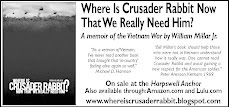The popular conception of the war in Vietnam, is that it was widely opposed from the start. What is forgotten is that, at least in Northern New England, the majority of the people, and even college students either supported the effort, or were at least silent in their opposition.
I can call to mind two events, long forgotten probably by even those who were present at the time. It was during my sophomore year at the University of New Hampshire (1965-1966). At that time, some of the more hard-hearted professors would admonish the class to study harder by warning them of the consequences of failure, which meant getting drafted. During my freshman year, an acquaintance of mine from the class ahead of me, failed to heed this warning, and to avoid being drafted, enlisted in the Army to become a paratrooper. He shortly found himself serving with the 101st Airborne Division in Vietnam, where his young life was tragically cut short. The university newspaper ran a rather lengthy story about him, quoting some of his letters home, and there was a general sympathy for the sacrifice he had made, even among some of the more pacifistic students.
How different that time from when I was ordered overseas in 1969, when a former college friend, in responding to a letter I had written telling him of my news wrote, “If you get killed or wounded, you’re only getting what’s coming to you.”
When spring brought the UNH campus out of its winter cocoon in 1966, word spread that a group of Quakers planned to hold a peace vigil in the Memorial Room of the student union, the Memorial Union Building, commonly called the “MUB.” The Memorial Room had a wall sized plaque with the names of UNH alumni, who had died in service during our past wars. Ironically the class of 1942, my father’s class, had the largest number of names from WWII, as 1968, my class, was to have in Vietnam.
The group proposed to walk from a silent vigil they would hold at the front gate of Pease AFB in Newington, NH to the Durham Campus and do the same when they arrived at the MUB.
Word quickly spread across the campus, and soon a large crowd, mostly male as I remember, gathered in front of the MUB, a few carrying American flags, to wait the arrival of the “Peaceniks,” and deny their entry. There was a strong feeling that to hold an anti-war vigil would desecrate the purpose of the Memorial Room. Rumors would spread through the crowd like a zephyr rippling across water as to the progress of the marchers. As I remember, some of the information was being relayed along by the police, as the local law enforcement agencies appeared to be in sympathy with the crowd. Had any violence been acted towards, the protestors that day, I doubt to this day that they would have received a lot of protection.
At last word arrived that they were at the outskirts of town, and people strained to see them coming. Unlike what anyone probably expected, the group consisted of about a dozen people, dressed in black, most of them older than we. As they walked quietly up the sidewalk on Main St., not a few of them looked terrified. The crowd, shouted, jeered, and probably a few water balloons or empty beer cans may have been tossed. From where I stood, off to the side, I could not tell if they said anything, but they did appear to pray.
My own feeling at the time was I thought it inappropriate to hold a peace vigil in a room honoring war dead, but the other half of me felt it was their right to do so whether I agreed with it or not.
After a few moments, the group decided not to try to enter, walked away and everyone went to the dining hall for supper.
I went to Germany that fall to study, and when I returned in 1967, the “Ballad of the Green Berets” and “Billy, Don’t Be A Hero,” had disappeared from the radio, and the crowd on the lawn of the MUB had now forgotten what they had done, that spring day in 1966.
Wednesday, January 28, 2009
Subscribe to:
Post Comments (Atom)



No comments:
Post a Comment